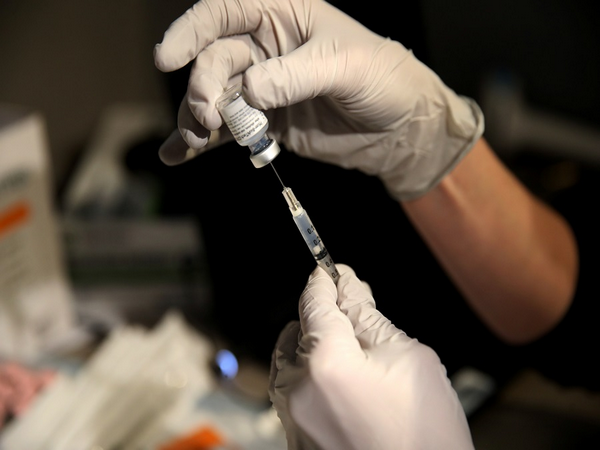Jordan says COVID-19 vaccination drive to accelerate in coming weeks
Jordan's national inoculation programme will speed up significantly in coming weeks as more vaccines arrive, the health minister said on Thursday. The country is battling a steep spike in cases from the variant of the coronavirus first identified in Britain.

- Country:
- Jordan
Jordan's national inoculation programme will speed up significantly in coming weeks as more vaccines arrive, the health minister said on Thursday.
The country is battling a steep spike in cases from the variant of the coronavirus first identified in Britain. In all, Jordan has reported 380,268 cases and 4,627 deaths. "Inoculation will speed up in the next few weeks and coming few months," Nathir Obeidat told state-funded public broadcaster al Mamlaka.
Jordan has administered 150,000 doses since it began its vaccination programme over a month ago. Only 400,000 people has so far signed up for the free shots since the government-run registration began in December. Officials are urging more people in the country of ten million to register.
Priority is being given to the over-60s. Jordan is set to shortly receive 2.2 million doses of Pfizer- BioNTech's vaccine, Obeidat said. The government earlier this year said it had struck a deal to buy one million doses.
Most of the vaccines that have arrived in small weekly batches so far have been from Pfizer-BioNTech, although the government has also received undisclosed quantities from the United Emirates of the vaccine from China's SinoPharm. The first shipments of AstraZeneca Plc's COVID-19 vaccine, which was granted provisional approval this week, will also arrive in the next two weeks, Obeidat said.
He said the country had the resources to inoculate as many as 40,000 people daily. On Wednesday, Jordan announced new social distancing restrictions, reimposed a one day lockdown on Friday, and extended a nightly curfew after a month-long spike in infections, mainly from a fast spread of the British variant.
(This story has not been edited by Devdiscourse staff and is auto-generated from a syndicated feed.)
ALSO READ
EXPLAINER-South China Sea: Why are China and Philippines tensions heating up?
China says EU subsidy probes interfere with China, Europe cooperation
Biden and Japan's Kishida forge new partnership, eyeing China and Russia
China tried to meddle but Canadians decided the last two elections, says PM Trudeau
China accuses EU of protectionism in investigation of subsidies for green industries










